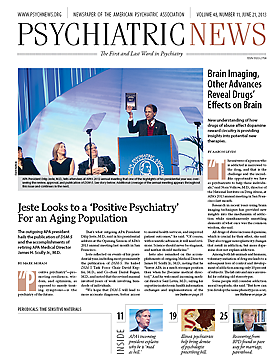The essential features of panic attacks remain unchanged in DSM-5, although the complicated DSM-IV terminology for describing different types of panic attacks (that is, situationally bound/cued, situationally predisposed, and unexpected/uncued) is replaced with the terms “unexpected” and “expected” panic attacks.
Panic disorder and agoraphobia are unlinked in DSM-5. Thus, the former DSM-IV diagnoses of “panic disorder with agoraphobia,” “panic disorder without agoraphobia,” and “agoraphobia without history of panic disorder” are now replaced by two diagnoses, namely, panic disorder and agoraphobia, each with separate criteria. The core features of specific phobia and social anxiety disorder remain the same. In DSM-IV, selective mutism and separation anxiety disorder were classified in disorders usually first diagnosed in infancy, childhood, or adolescence. They are now classified as anxiety disorders.
1. Which of the following disorders is included among the anxiety disorders in DSM-5? a) obsessive-compulsive disorder b) posttraumatic stress disorder c) acute stress disorder d) panic disorder with agoraphobia e) separation anxiety disorder
2. A 65-year-old woman reports being housebound despite feeling physically healthy. She reports falling while shopping several years ago; although she sustained no injuries, the situation was so distressing to her that she becomes extremely nervous when she has to leave her house unaccompanied. She has no children and few friends. She is very distressed by the fact that she has few opportunities to venture outside her home. Which of the following disorders best accounts for her disability? a) specific phobia—situational subtype b) social anxiety disorder c) posttraumatic stress disorder d) agoraphobia e) adjustment disorder
3. A 35-year-old man is in danger of losing his job; the job requires frequent long-range traveling, and for the past year he has avoided flying. Two years prior, he traveled on a particularly turbulent flight, and although he was not in any real danger, he was convinced that the pilot minimized the risk and that the plane almost crashed. He flew again one month later, and although he experienced a smooth flight, the anticipation of turbulence was so distressing that he experienced a panic attack during the flight. He has not flown since. Which of the following disorders is the most likely cause of his anxiety? a) agoraphobia b) acute stress disorder c) specific phobia—situational type d) social anxiety disorder e) panic disorder ■
